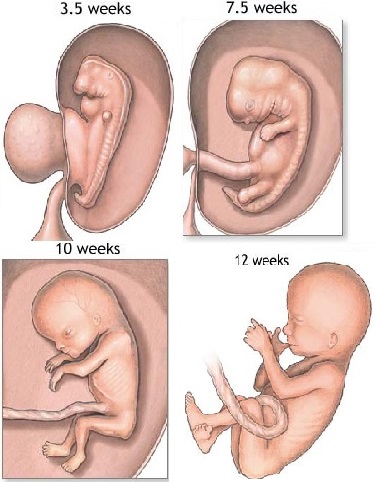
One of the most blissful phases in a woman’s life is- motherhood. The moment you conceive and see your pregnancy test positive, the excitement begins from that very day. Starting from the joy of the arrival of your baby, to choosing a name and deciding the colors of his room, the eagerness is limitless.
Even though you make all the preparations for your baby’s arrival, you may not be aware about the physical and emotional changes experienced by your body during pregnancy. Once you conceive, your body goes through a whole lot of changes during the nine months of pregnancy. The article highlights the signs, symptoms and body changes that your body goes through the first three months of pregnancy aka First Trimester.
What is the First Trimester?
The first three months of your pregnancy is known as the first trimester. It is calculated from the 1st day of your very last menstrual cycle, going on to the twelfth or thirteenth week of pregnancy. This is the most primary and the most important phase of your pregnancy which is connected with the development of your baby.
First Trimester calender week by week
| Month of Pregnancy | Week by Week |
| First month | 1-2, 3, 4 |
| Second month | 5, 6, 7, 8 |
| Third month | 9, 10, 11, 12, 13 |
The Common Symptoms of the First Trimester or signs in first month of pregnancy
Different women experience different symptoms during their first trimester. However, here are some of the most common symptoms experienced in first trimester by a majority of women: these often happen in first month of pregnancy.
Constipation
During pregnancy, your progesterone levels increase and due to this reason the muscle contractions which help to move your food all through your intestine delays its operation. In addition, the iron supplements that you take during your pregnancy also lead to constipation. Drinking lots of fluids and increasing the intake of fiber can help alleviate your constipation. Sometimes doctors also suggest some mild laxatives in case of bother some constipation.
Fatigue
One of another early sign of pregnancy is fatigue. For the development of fetus, your body needs to work hard and hence it can make your feel extremely tired. Whenever you feel exhausted take rest or small naps all through the day. Moreover, also take iron supplements if you are anemic because it can result in excess fatigue.
Nausea
Due to the increase of progesterone and estrogen levels during pregnancy, your stomach can empty extra slowly which can lead to nausea. Some women also nauseate due to particular strong odors like perfumes, specific foods or cigarette smoke. Eating small repeated meals and avoiding odors that can aggravate your nausea may help you to alleviate this symptom.
Bleeding
This symptom is experienced by nearly 25 percent of women during the first trimester. In the beginning of pregnancy you may notice some light spotting which might be a sign that a fertilized embryo has been fixed in your uterus. However, you must check with your doctor if you are going through a heavy bleeding along with cramping in your abdomen.
Frequent Urination
During the first trimester your baby is quite small, yet your uterus continues to grow and hence it puts pressure on your urinary bladder. Consequently, you might feel a constant urge to urinate quite often. However, you should not stop taking the essential fluids, but you can reduce your caffeine intake which pushes your bladder even more. Avoid fluids just before going to bed.
Mood Swings
Due to the changing hormones and an increased fatigue; at times you may feel excited and elated while at times you may feel depressed and irritable. In order to soothe yourself spend more time with your spouse, family and friends. It will help you to deal with your mood swings.
Weight Gain
Weight gain is a very common thing during the first trimester, however you should not overdo it. The ideal weight gain during your first trimester is three to six pounds only. Thus, instead of gorging on for two, take a nutritious and balanced diet which should abound with vegetables, fruits, whole grains, milk and lean meat.
The Warning Symptoms of the First Trimester
If you are going through a heavy bleeding, terrible abdominal pain, excessive weight gain and acute dizziness, immediately get in touch with your doctor.
The Check-Up & Screening during the First Trimester
During the eight week of your pregnancy, your doctor schedules your very first prenatal check up. This check up includes the checking of the development of embryo whether or not there are any abnormalities. Moreover, this health check also helps to calculate your delivery date as well as to look at your past medical records.
Things to Ponder during first trimester
The first trimester is the period when the growth of the baby’s nervous system takes place. Thus, make certain that you take the folic acid and vitamin supplements. Also avoid the intake of any kind of drugs, caffeine and alcohol. During the first trimester your baby is at a higher risk of neural tube defect.
In case of a risky pregnancy avoid travelling in your first trimester; especially train journey should be completely avoided. Your doctor may suggest you some light exercises which can help you to reduce the labor pain and facilitate a timely delivery.
Leave a Reply